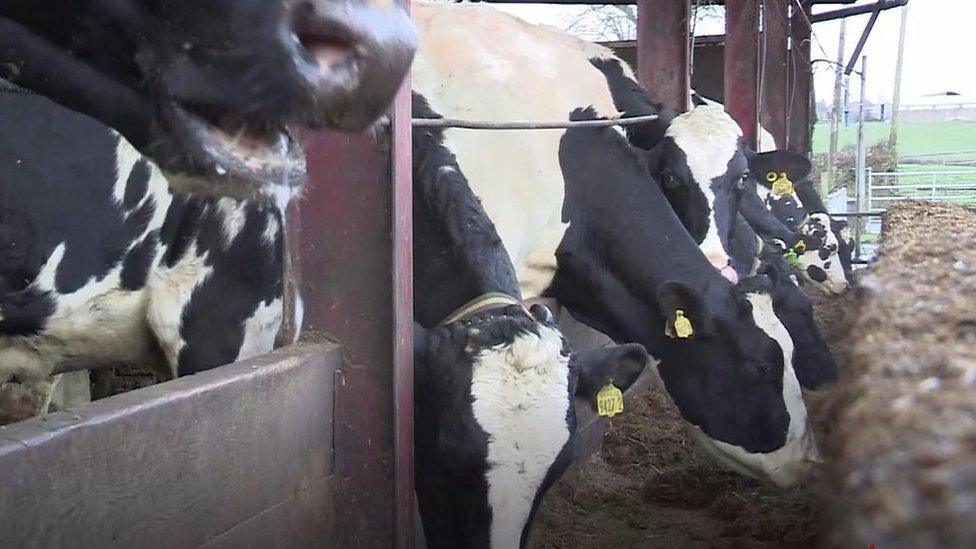Bovine TB: The devastating impact on Northern Ireland herds
- Published
This farmer, who asked not to be identified, spoke to BBC News NI's Conor Macauley
If you're a dairy farmer, then helping load your pedigree herd on to a lorry to the abattoir must be a very difficult day's work.
Last week, I watched a farming family - a father and two sons - do just that.
All three, at one time or another, were in tears.
Their cattle had tested positive for bovine TB, a cattle disease that will cost the taxpayer £40m this year in testing costs and compensation payments.
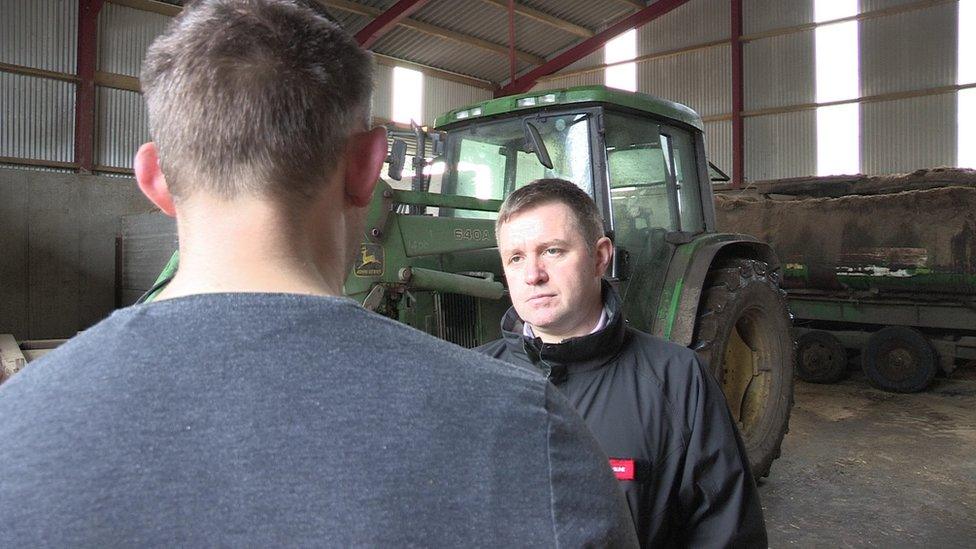
The farmer talking to our agriculture and environment correspondent Conor Macauley
It's estimated that almost one in 10 herds now has it.
The family has asked not to be identified, worried that other farmers may not want to buy cattle from them even after they're clear of the disease.
More than 60 of their cows had gone down with the disease, around a third of their milking herd.
It means the money they get for their milk will be reduced by about £20,000 a month.
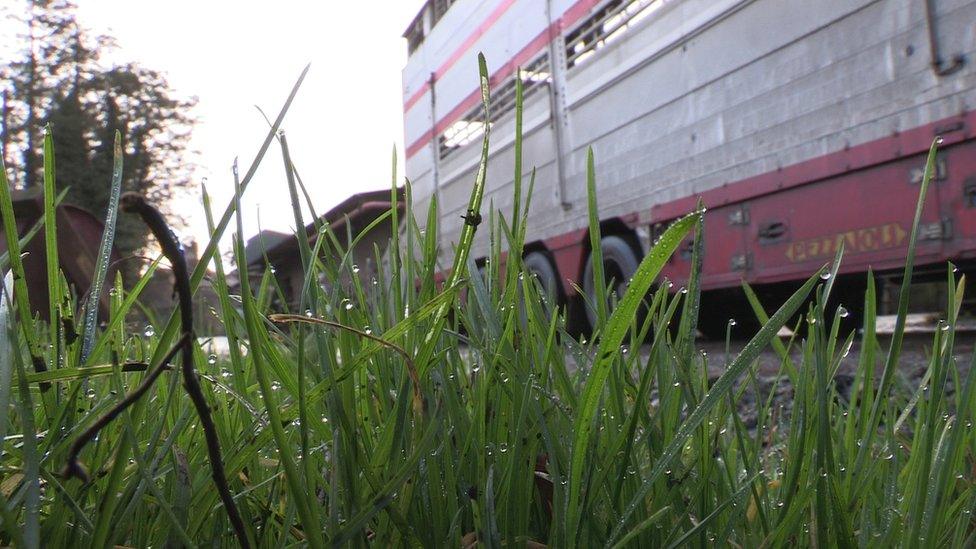
The transporter parked at the farmyard to take the cattle to the abattoir
And because they can't buy replacement animals until they're declared disease free, that situation could continue for several months.
But there are other considerations than just the pure financial.
There's the emotional wrench of losing a big part of a herd it has taken 30 years to build up.
These animals have been selectively bred over three decades to provide top quality milk and that's a bloodline you don't recover easily.
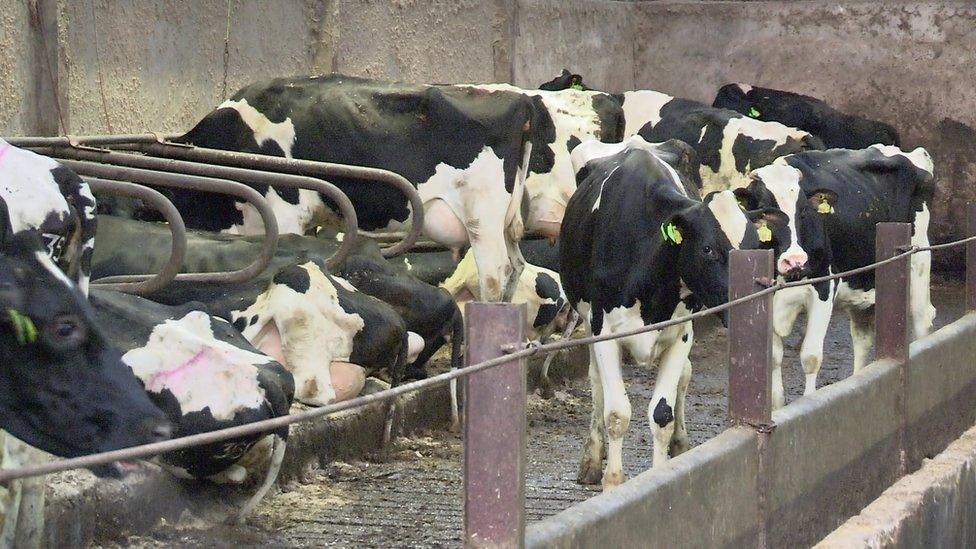
It has taken 30 years to build up the herd
And then there's the impact on families, and in particular children, who are a big part of any farming outfit.
The sons on this farm have their own children who're developing a love of this way of life.
And it's very hard to explain to a young boy that his favourite cow, which looks quite healthy, has to be slaughtered.
"He loves the cows, he wanted to come down and see them before they went today," his father said.
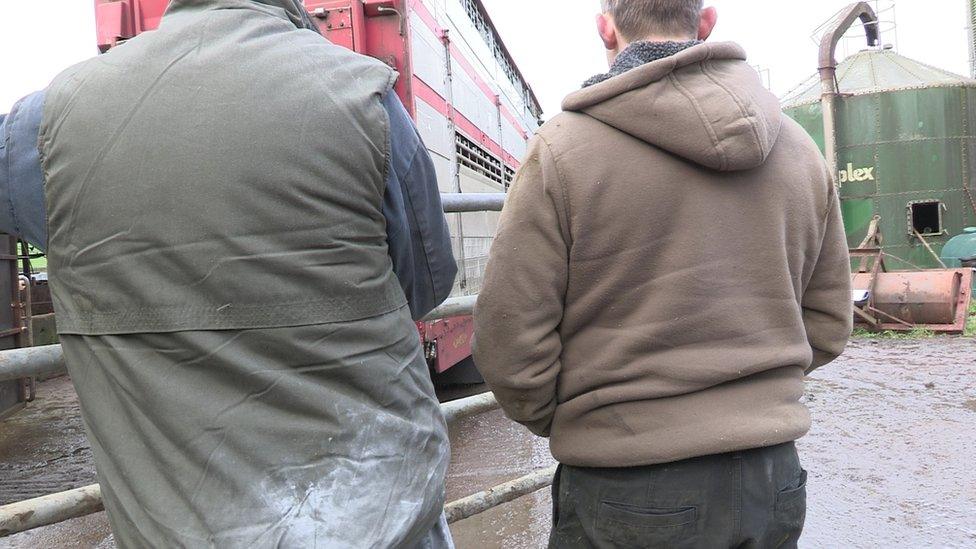
The brothers watch their prize herd being driven away
"Obviously when the cows went down (with TB) it's discussed within the family.
"I don't let him see my full emotions, I try to protect him from that as any parent would do."
He said he hasn't told his son directly that the cattle are to be slaughtered, but he knows that the child understands that's what's happening.
There are other implications of testing positive for TB. In the month between the result and the arrival of the lorry to take them away, the farm has had to pour 2,000 litres of milk a day into its slurry tanks because it can't be sold for human consumption.
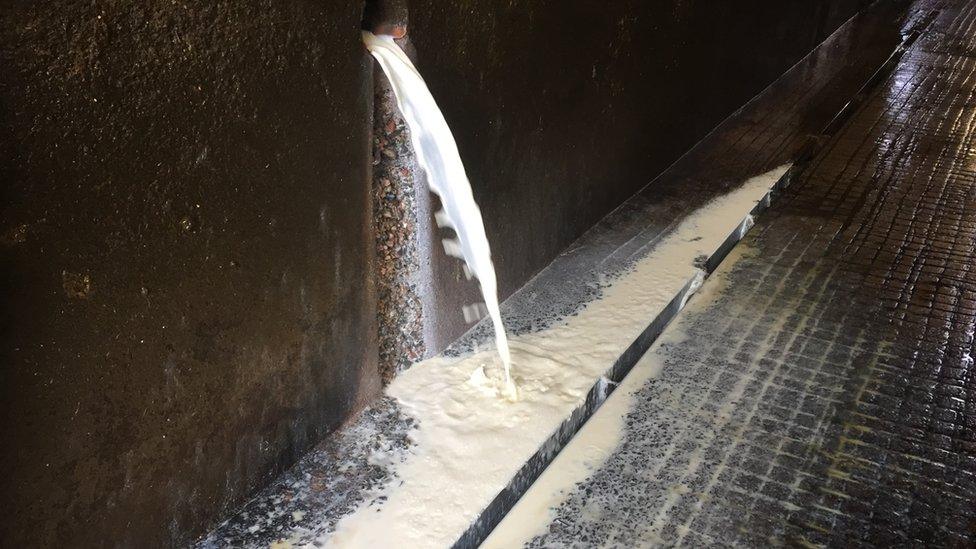
Two thousand litres of milk a day were being poured into the slurry tanks
This family believes their cattle got TB from badgers on their farm. They support new government proposals for a targeted cull in certain areas as part of a wider plan to get on top of the disease.
Farmers have said there's no point in culling cattle if you don't also address the issue in wildlife, which carry the same strain of the disease.
The farmer said he has seen badgers that have died of the disease and describes it as a terrible death.
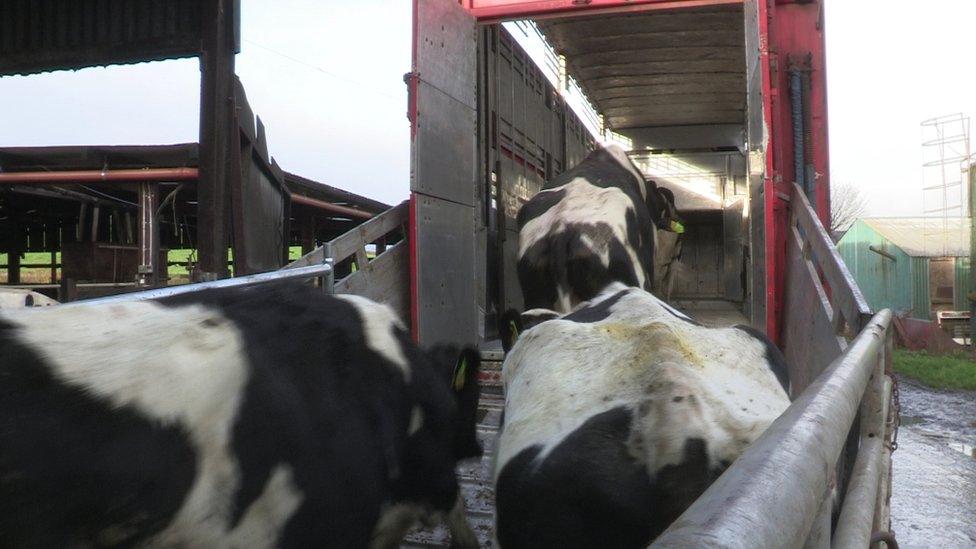
Pedigree cattle being loaded onto the transporter to the abattoir
He believes a proportionate approach to the issue in wildlife will be good for the health of the badger population and mean fewer difficult days for families like his on the farms of Northern Ireland.
- Published12 December 2017
